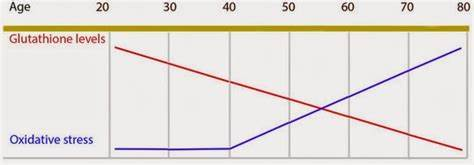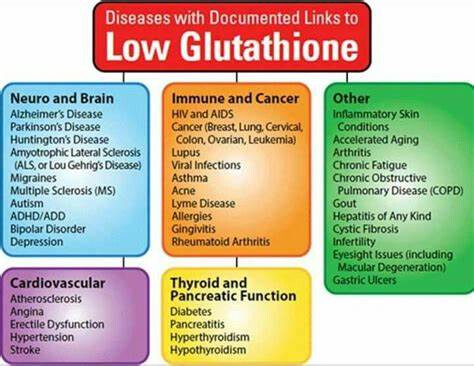Glycine has three possible pathways to improve longevity IMHO. The first is the effect on sleep. Who wouldn’t want to improve their sleep?
The second is methionine clearing.
The third is glutathione restoration. Humans don’t consume enough glycine typically so our bodies are always running at a deficit. I try not to be deficient in any nutrient my body needs.
Those three factors and maybe more led to a statistically significant improvement of longevity in ITP studies of 5%. That may not sound like a lot, but it’s far ahead of many other supplements which are inconclusive or not statistically significant.
Also it acts in a different pathway from Rapamycin, so it is likely to be additive in effect.
It’s cheap and tastes good. I use it as a sweetener instead of sugar. Why not take away sugar and replace it with something healthy?
12 Likes
Bicep
#105
It also gets rid of homocysteine permanently. Thereby reducing levels.
4 Likes
So this study directly refutes the Baylor study of GlyNAC on older adults? — Baylor said GlyNAC supplementation had significant increases in GSH and physical health over 24 weeks (which then declined back to baseline after supplementation stopped); this Nestle study suggests nothing really impacted. The high dose here is pretty close to the dose in the Baylor study. Which to believe?
2 Likes
As I get older I am not anxious to add anything new to my “stack”. In fact, I will continue to whittle away at it until it’s down to a precious few, leaving only those with compelling evidence.
Yes, the fact that rapamycin has worked on all mammals studied, I find rapamcin compelling.
8 Likes
LeeJohn
#108
Are there any benefits for people under 50s or under 30 taking Glycine?
Glycine is very cheap, even cheaper than soybean protein powder and whey protein powder per gram, and it shows life extension in ITP study, I would like to give it a try, but most MD recommend glycine for the elders and insomnia patient, I don’t know if the result of ITP study also applies to young group?
For young people under 50s or 30s, is it beneficial or harmful taking Glycine?
1 Like
Your question is similar to any other supplement. When should you take it?
When you have symptoms that need to be treated?
OR
When you want to prevent symptoms from forming?
Glycine is one of three components of glutathione. As you can see from the graph below, Glutathione (GSH) starts decreasing in your twenties, but the negative effects don’t start showing up until your 40s. Glycine is one of the basic components of GSH. The other is cysteine. There’s a third as well, glutamate, but your body runs a surplus so no need to supplement.

It’s kind of like asking when should you start eating healthy and exercising. Glycine is cheap useful and healthy. Your body starts running a deficiency in your 40s. So that’s when I started. I probably would have started in my twenties if I was aware of it then.

8 Likes
Understanding that you have an n=3 GlyNAC “study” going, you mentioned in August 2022 that you saw results similar to Baylor after two months. Are you taking the “high dose” Baylor protocol (i.e. 8g glycine/etc. daily)? What kind of results have you noticed? Have they continued? I ask because I am taking GlyNAC as well but much lower doses (3g glycine, 50mg NACET which supposedly may correspond to a 500-1000mg of NAC due to bioavailability, together in the morning) for roughly three months thus far and noticed really nothing, although I didn’t run blood tests beforehand and am 52 and in pretty decent fitness (and not yet taking Rapamycin) so I can’t speak quantitatively on any personal progress or changes in grip strength/etc.
I might observe I recently got COVID for the first time with any symptoms while on GlyNAC (I had antibodies but no symptoms before, and was then vaccinated the requisite two times in early 2021 given my risk factor) and also got a subsequent cold, both which are unusual given that I rarely get sick for decades (outside of cancer) and then got sick twice in the three months since taking GlyNAC, so I worry there may be some immunosuppressive action happening with GlyNAC. Or maybe I was just unlucky, or it’s recent stresses — with n=1 it’s near impossible to tell. I’m not taking anything else outside of low vitamin d supplements and eating low carb with intermittent (20 hour) fasting during the week and occasional four-day water/coffee fasts (roughly every 8 weeks when I feel like it).
Given its safety and potential benefits I’m likely to continue and perhaps increase my NACET dose, and risk getting another cold to see if it has impact. And if that goes well I may eventually double both to reach the Baylor levels.
Thanks for your observations on this.
2 Likes
Unfortunately no new updates as my parents only get blood draws annually, and that’s already a lot more than they used to. We’ll have to wait for next August for an update. My parents are doing 6g of both glycine and NAC daily. I am doing 3.2g of NAC daily and 2 tbsp of Glycine daily plus 5g of Collagen which has glycine. Hope that helps!
2 Likes
For those interested in the metabolic pathways of glycine in relation to homocysteine and GSH…
2 Likes
Terri56
#113
@pollux Serious question: can supplements purchased on Amazon be trusted?
1 Like
Amazon is just a store. They sell good and bad products. You have to do your own research to find trusted brands. I have been buying most of my supplements from them for more than a decade. I have no complaints about Amazon. I have bought a few sketchy supplements from them, but that is on me. Amazon can’t research every product they sell.
5 Likes
pollux
#115
i have taken NACET for more than two months, i feel fine, my hair turns from grey to black. You can read the user reviews on amazon.
2 Likes
I trust the NOW brand, so if they have a supplement I want, I usually buy it from them. It also helps that they are relatively inexpensive. Quality of brands can be researched at labdoor.com.
2 Likes
It will be interesting to see if glycine reduces his homocysteine levels, though it seems that a 2 gram dose may be too low.
2 Likes
Vlasko
#118
The price has come down on NACET. Until recently it was sold as a powder research chemical. Now it’s available in capsules as a supplement on Amazon. There isn’t a whole lot of research using it yet. But one key study seemed to establish that it replinishes glutathione to eye cells much better than NAC.
1 Like
At his age, 2-3 g are needed as a top off. As he gets older he’ll need more based on the research. By the time he is 60, hell probably need 5-6 g.
1 Like
Vlasko
#120
How much NACET are you taking? I’m thinking I may take 100 mg every 8 hours.
I’ve read studies suggesting that we have a chronic glycine deficit of 10 grams per day.
3 Likes
Vlasko
#122
2 Likes
GlyNAC supplementation for 24 weeks in Older Adults (OA) corrected RBC-GSH deficiency, OxS, and mitochondrial dysfunction; and improved inflammation, endothelial dysfunction, insulin-resistance, genomic-damage, cognition, strength, gait-speed, and exercise capacity; and lowered body-fat and waist-circumference. However, benefits declined after stopping GlyNAC supplementation for 12 weeks.
OAs were provided capsules of glycine (1.33 mmol/kg/day) and cysteine (0.81 mmol/kg/day, provided as N-acetylcysteine [NAC]) prepared by a licensed pharmacist, and replenished every 4-weeks for 24-weeks. Compliance with GlyNAC supplementation was assessed with phone calls and capsule-counting every 4-weeks when OA returned to collect GlyNAC capsules for the next 4-weeks, and to have blood drawn for monitoring renal (creatinine) and liver function (as ALT and AST).
Can someone help with the math for how many grams daily? My calculations are not working out right.
This is the seminal paper on Glycine + NAC
https://onlinelibrary.wiley.com/doi/10.1002/ctm2.372
2 Likes